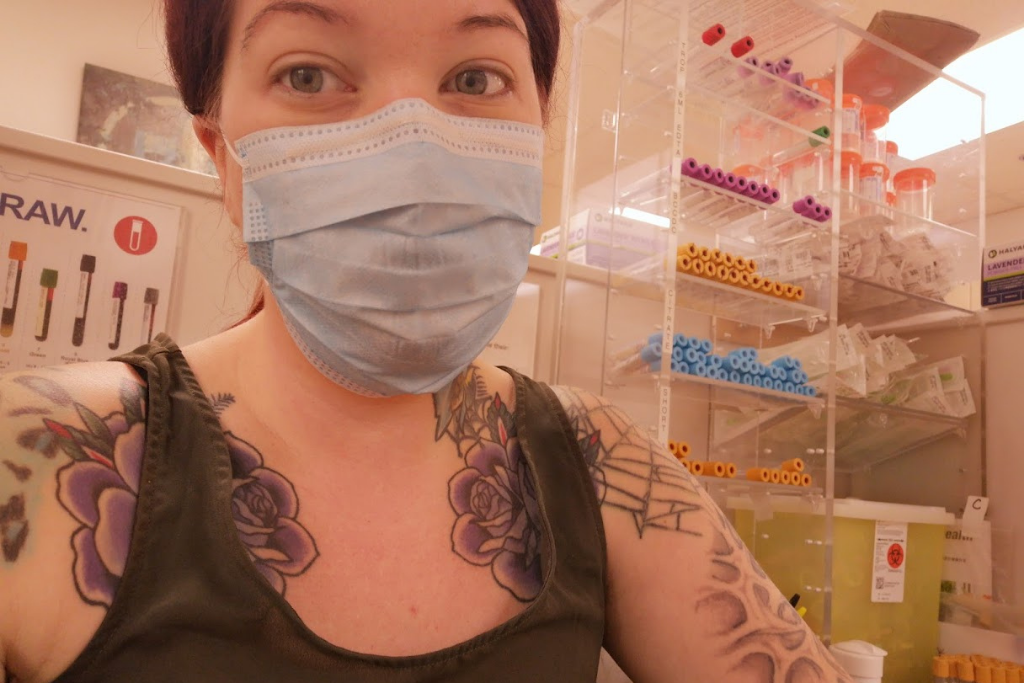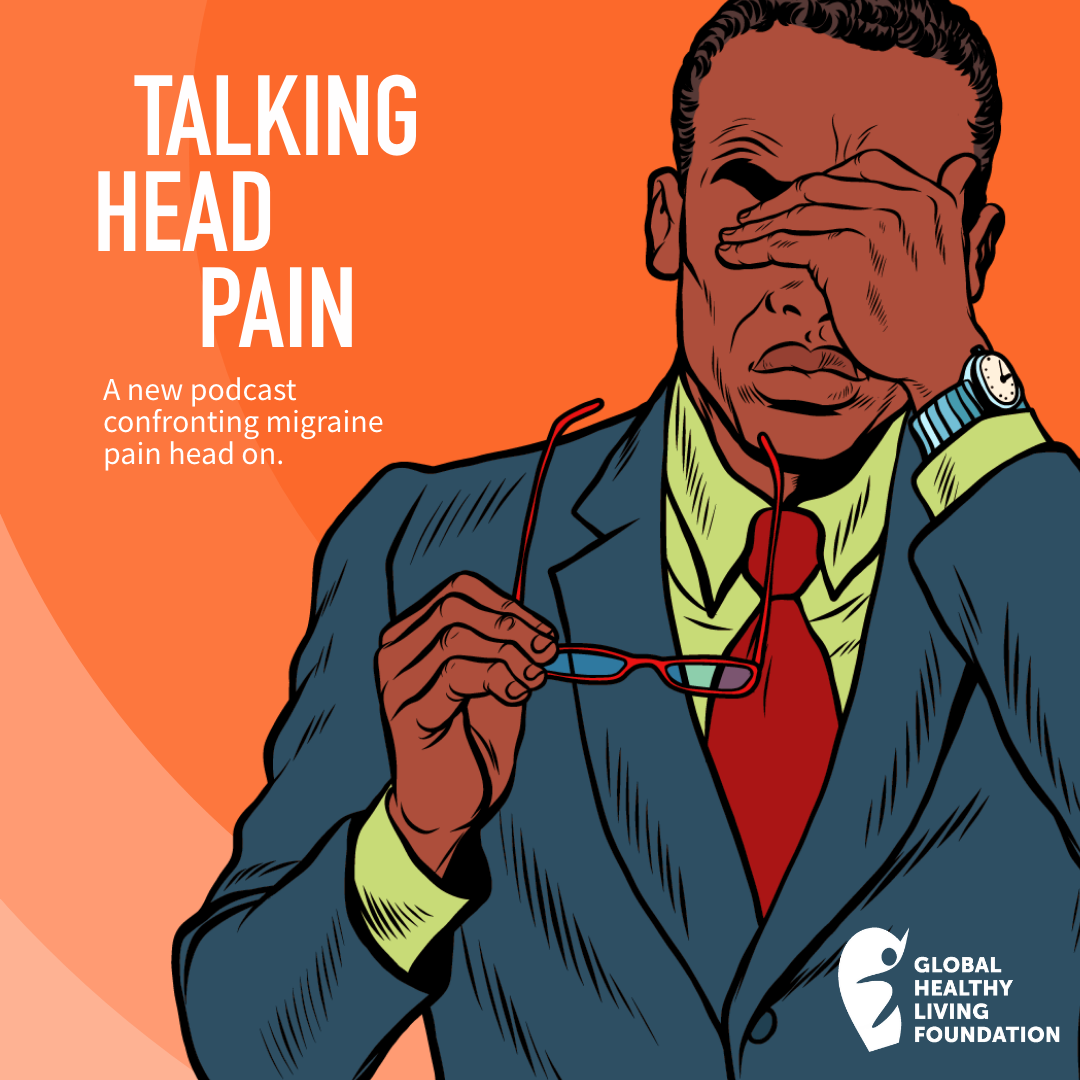When you live with multiple bumpy chronic illnesses, you often can’t go a few weeks without needing the care of your family physician or another health care provider. I recently learned this the hard and painful way as I said goodbye to a doctor who was filling in for someone who was supposed to be my family physician after my previous family physician left.
It’s a tongue twister, I know. Over the last nine years, I’ve had over a dozen family physicians that I can remember. Not all have been a good fit and it seems none of them want to stick around.
While I might live with rheumatoid arthritis that is treated by a rheumatologist, it’s common for those with a chronic illness to have multiple comorbidities and go through bumps with their chronic illness that require the care of a family physician. Along with RA, I also have osteoarthritis, fibromyalgia, endometriosis, anxiety, and depression.
During the pandemic I have had a number of health scares — from showing signs of MS or Transverse Myelitis to a colposcopy for precancerous cervical cells needed to be removed to a colonoscopy to check for IBD or stomach cancer. I ended up with a mysterious vitamin deficiency that mimicked MS. It’s safe to say, I need a family physician.
I grew close to my last fill-in family physician who provided the family physician care I’ve dreamed about. I went through a lot in her time filling in for what should have been my regular family physician. She even remembered my concerns each visit and in detail helped me through them. This isn’t something I have been able to experience from a family physician in a while, a very long while. I was shocked she actually took time to go over my concerns. I mourned her moving on, especially when I took a bad fall on New Year’s Eve, only two weeks after she left.
The thing is, doctors seem to open up a shop and then leave before I can connect the way I need to with my primary care physician. The other issue is the ever-changing doctors at a clinic when I am supposed to have one family physician. It seems next to impossible to book with one regular physician because they are doing something else, so you get one of their colleagues or a replacement. This makes me feel like I need to start from scratch each time I have a concern I want to take to my physician.
Why Is There a Shortage in BC?
The shortage of doctors can be felt across the country for various reasons, like geography. Canada has an incredible amount of rural communities. Nearly five million Canadians aged 12 or older reported not having access to a primary health care provider, according to a 2020 Statistic Canada report.
But for BC, the problem is not only based on the province’s geography but on an outdated billing system that adds too much strain on doctors to run a practice. This model is referred to as fee for service and requires family doctors to bill their health authority per visit. Doctors do not get paid for spending more time and attention on a single patient.
A report recently published in Canadian Family Physician Journal highlights this outdated payment model for family doctors in BC. This is deterring aspiring physicians from pursuing the work and contributing to the ongoing family doctor shortage in the province.
Why practice in BC when they could make more elsewhere for less work? On average, BC produces 210 physicians a year, but we aren’t keeping them and it’s still not enough for our growing and aging population.
You see the medical system here hasn’t made their workload easy but instead quite demanding. They have to bill the provincial government for their services and have to find and lease their own space, hire their own staff, and source their own equipment and supplies; most spend many hours running their business.
Under the payment model, doctors and hospitals are paid by the province for each office visit, test, or operation. To stay afloat, they need to continuously work through a high volume of patients and run a business at the same time but can only take a patient on for 10 minutes tops and get to one maybe two concerns.
As patients like me become increasingly complex, it’s becoming clear that it’s not working for either of us.
Being Denied Care Hurts
Doctors can decide if they want to treat you or not. I found this out when a clinic I was going to kicked out many patients they viewed as “non-serious” as one of their doctors left. I pleaded with them to keep me and was told they were accepting new patients a year or so after I was kicked out, but again, they did not return my calls.
Throughout my involvement as an advocate, I’ve been told that a lot of doctors do not want to treat chronic pain patients or those with multiple chronic illnesses. Why add more strain on an already over strained job?
It doesn’t matter who’s rejecting you because of your illness — every time it still stings. Naturally not having the care I need only makes my health worse, and that hurts. I live with multiple progressive conditions that often intertwine with each other.
So when a family physician sees a girl like me come in, with multiple issues in each visit, I can easily overwhelm them or be told I need to make another appointment another time. I am only allowed to talk about one concern for a few minutes at a time and I better be quick about it. That’s hard to do when you have the chronic health resume I do: rheumatoid arthritis, osteoarthritis, fibromyalgia, anxiety, depression, endometriosis, ovarian cysts, copper deficiency, monitored for abnormal cervical cells, and more. Think that might be overwhelming to treat? It’s also overwhelming to live with.
9 Reasons Why It’s Tough to Cope with Revolving Family Physicians
Not having a consistent family physician is a huge problem for me for many reasons, here’s why:
It Builds Anxiety and Removes Trust
I’ve had good, bad, and mediocre doctors before — but each time I need one there is a rush of anxiety if I will receive the care I need. It’s kind of like going on a first date, is this a right fit? Is this doctor going to listen and let me explain what’s going on before cutting me off to get through to the next patient? Am I about to experience medical gaslighting and leave the appointment feeling worse off? As if needing to go to the doctor in the first place doesn’t cause enough anxiety in the first place.
I Often Do Not Receive the Care I Need
Walk-in clinics often don’t provide the care or time I need with complex health problems. I often need to book multiple appointments in a month or week to cover all my needs and still don’t get all my concerns addressed because the doctors don’t know my condition well enough or are already rushing onto the next appointment by the time I get to explain my first concern. Walk-In clinics also can’t monitor my chronic conditions or offer much information how something may affect my rheumatoid arthritis and medications.
It Puts More Strain on My Specialists or the ER
I can’t always rely on my rheumatologist and my health can’t always rely on their wait times, which can be three to six months in my location. I can’t go into the ER for every health concern as that puts me at greater risk for COVID-19 or other infections. However, not having a family physician means more frequent ER visits and strain on my already strained specialist who’s waitlist is significantly longer than that of a family physician.
They Might Miss Something
I’ve had a lot going on in the last few years with my health. I have a hard time keeping up with everything my health needs. I don’t expect a doctor to remember everything about me but I definitely need one to work with me and know a bit of my history. I also need one who understands rheumatoid arthritis, a disease family physicians don’t typically get enough training on in medical school.
It Makes My Long Complex Medical History Even More Confusing
What doctor did the test or prescribed their medications is something I get asked a lot but I have a hard time remembering what doctor it was because I go to so many.
Not All Doctors Are Created Equal
Many family physicians do not have adequate training about rheumatoid arthritis, fibromyalgia, or chronic pain in general. My rheumatologist warned me to hide my fibromyalgia diagnosis as if it should be my dirty little secret from my HCP so I receive the care I need. I can be left hoping the doctor believes me when I tell them about my current struggles as some may brush me off real quick once I say I have certain invisible conditions.
It Adds to Medical PTSD
Going through chronic illness is traumatizing: the tests, the waiting, the pain, and impact it has on my mental health. When a bad or rushed doctor is added to the equation, it’s even more traumatic for me as a patient.
It Is Exhausting Having to Explain Myself Over and Over
Brain fog may cause me to forget an important fact if I am exhausted just from the anxiety of meeting a new doctor each time.
It Makes Me Feel Hopeless, Alone, Lost and Scared
Going through chronic health conditions isn’t fun; it’s very lonely, isolating, and scary. Being rushed through medical professionals can cause me to feel hopeless with my health, which can cause me to feel like giving up on taking care of myself.
The Only Way Through This Is to Advocate For Myself
Not everything can be relied on by my HCP team — I have to take some accountability and advocate for myself. Understanding that self-management of my chronic conditions can help me delay the need of seeing a doctor so often, not always, but sometimes. I do what I can to stay healthy.
It’s extremely important to keep a detailed record of my medical history written down. You see, unfortunately not all clinics will have access to all your records so consider creating a note in your phone or google drive for you to refer to. This helps with your medical history, medications, surgery dates, hard-to-remember doctor names, phone numbers, and addresses. You can never be too prepared.
Beforehand, I always make notes of my questions or concerns in order of importance because they may not get to all of them. Also, be prepared to make more than one appointment thanks to our wonderful medical system’s fee-for-service model.
One way to find a family physician is word of mouth. Ask around for recommendations from friends, family, and other health care providers if they know of a family physician accepting new patients. Sometimes a doctor may take you on referral from an existing patient or through a specialist.
I use a walk-in clinic when in a bind that lets me book online, offers virtual appointments, and isn’t in a too-busy location if I need to go in person. Even just finding an office where your anxiety is reduced can help you think clearly at the time of your appointment. Don’t be afraid to ask the walk-in clinic doctor if they are willing to take you on as a regular patient.
Nurse Practitioners Can Fill A Gap
Nurse practitioners (NPs) are a great solution when you can’t access a family physician as they can provide longer appointments and more personalized care owing to the fact that they don’t have to bill like doctors do. They are paid by salary, or on contract, so can spend more time per patient in some situations. Some patients even prefer a NP over a GP because the NP will take more time with them. Sometimes just having someone take the time to listen to our struggles is the best treatment.
Registered nurses who have completed additional training, education, and nursing experience are NPs. Their extra credits enable them to do a lot of what a family physician can do and can do more than a regular registered nurse. In BC, Ontario, Manitoba, the Northwest Territories and Nunavut, NPs have full hospital privileges.
Some medical clinics offer patients to see a nurse practitioner, who can do a lot of what a family physician can do, including:
- Prescribe medication
- Examine patients
- Order diagnostic tests and interpreting laboratory tests
- Diagnosis illnesses
- Provide treatment
- Develop treatment plans
- Obtain patient histories
However, NPs should be seen as complementary to my care rather than as substitutes for physicians care. The skills and training NPs have can make them valuable members of my collaborative health care team. The thing is nurse practitioners still don’t have as much experience with intensive training in clinical settings and years of education that a general practitioner can offer and should not always be a substitute but a collaboration.
Unfortunately, the province I live in is one of the provinces that does not have Physician Assistants (PAs), which is another problem in itself. They too can provide care in areas I often need when a family physician can’t be reached.
Websites to help you find a family physician in BC:
- Visit the Pathways Medical Care Directory. The directory helps you connect with family doctors in your community.
- Contact HealthLink BC using the 8-1-1 toll-free number (If you are hearing impaired, call 7-1-1.). You will be able to speak to a health service navigator who can provide you with information about finding a family doctor in your own community.
- Your local Division of Family Practice who may have knowledge of family physicians who are accepting new patients: https://www.divisionsbc.ca
Stay in Touch with CreakyJoints Canada
Part of the nonprofit Global Healthy Living Foundation, CreakyJoints is a digital community for millions of arthritis patients and caregivers worldwide who seek education, support, advocacy, and patient-centered research. All of our programming and services are always provided free of charge. As we grow CreakyJoints Canada we want to hear from you. Please join our email list to stay connected, learn about new content and initiatives, and send us suggestions and ideas.






